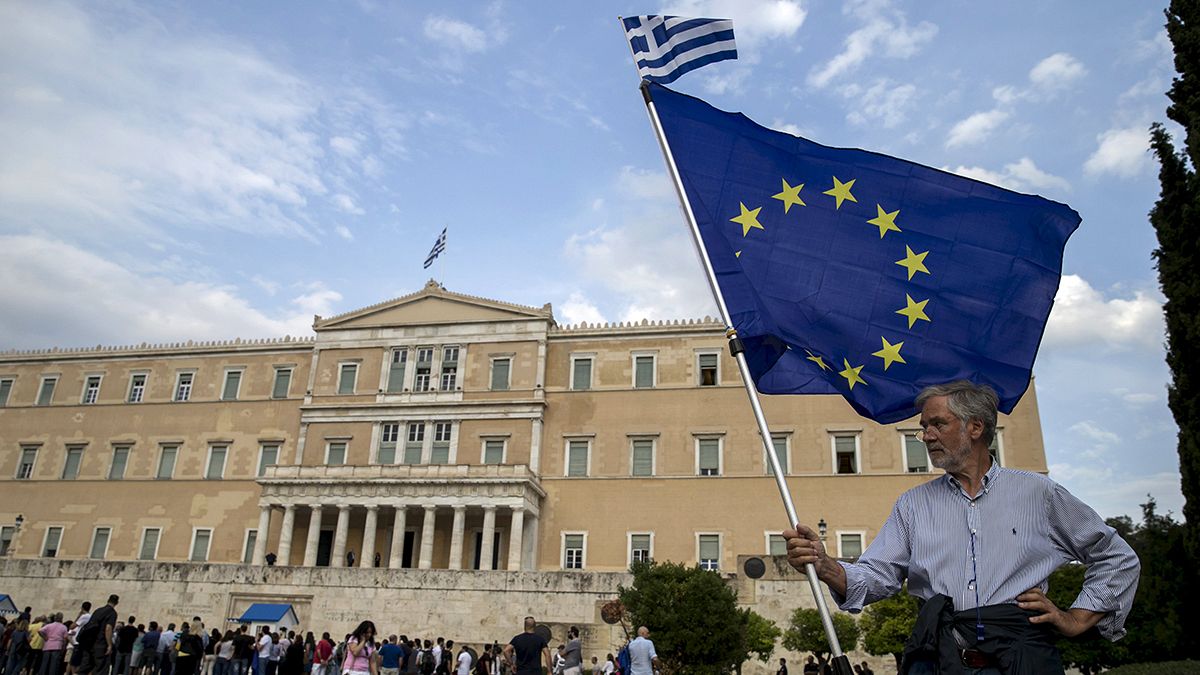After Athens missed a deadline to repay an IMF loan, eurozone finance ministers are meeting to consider a last-minute request for a new bailout.
Greeks have been waking up to a very uncertain future after the government missed a midnight deadline to repay an IMF loan of around 1.5 billion euros.
Eurozone ministers refused to extend the country’s bailout, meaning the country can no longer access billions of euros in funds.
Amid a tight financial squeeze, 1,000 banks are re-opening on Wednesday as planned but only for pensioners who don’t have cards for cash machines.
Queues formed early among those looking to withdraw a maximum of 120 euros a week. For everyone else, banks remain closed till Monday.
The missed deadline to repay the International Monetary Fund means Greece is now officially in arrears – the first time an IMF loan has not been repaid since Zimbabwe in 2001.
The IMF said in a statement on Greece that there would be no more funds until arrears were cleared, and a request by Greece to extend the deadline would be considered “in due course”.
Statement by the IMF on Greece: http://t.co/PuXWGYLhbg
— IMF (@IMFNews) June 30, 2015
The Eurogroup is meeting on Wednesday to examine Athens’ other last-minute request for a new bailout of 29.1 billion euros from the eurozone’s 500 billion euro rescue fund known as the European Stability Mechanism (ESM).
A spokesman said the planned meeting would take place on Wednesday afternoon.
At the request of several ministers today's #eurogroup teleconference will start at 5.30pm #Greece
— Michel Reijns (@MichelReijns) July 1, 2015
Greek Prime Minister Alexis Tsipras submitted the proposal on Tuesday for an aid programme over two years accompanied by parallel debt restructuring.
(function(d, s, id) { var js, fjs = d.getElementsByTagName(s)0; if (d.getElementById(id)) return; js = d.createElement(s); js.id = id; js.src = “//connect.facebook.net/en_GB/sdk.js#xfbml=1&version=v2.3”; fjs.parentNode.insertBefore(js, fjs);}(document, ‘script’, ‘facebook-jssdk’));> [YOU] Was Alexis Tsipras right to allow the Greek people to decide on the EU's proposed aid package via a referendum?❏ Yes❏ No❏ I don't know
Posted by euronews on Tuesday, 30 June 2015
The head of the Eurogroup Jeroen Dijsselbloem said Greece must change its stance towards its creditors before eurozone partners could make a decision, adding that any new programme may come with even tougher conditions than before.
A tweet from the Finnish Finance Minister Alexander Stubb implied that the Greek request would not be handled urgently. The German Chancellor Angela Merkel said earlier that further negotiations would have to wait until after Sunday’s planned referendum on a previous bailout offer.
…request for ESM-programme is always dealt with through normal procedures.
— Alexander Stubb (@alexstubb) June 30, 2015
The governing council of the European Central Bank (ECB) is also meeting on Wednesday to consider its response to the Greek default. Its emergency liquidity to Greek banks has already been frozen.
Amid the up-to-the-wire manoeuvring, Greece’s future in the eurozone hangs in the balance. Confusion and uncertainty reign ahead of Sunday’s referendum.
Euronews correspondent Akis Tatsis reported from Athens:
“Greece has become the first country in the developed world not to meet its obligations to the International Monetary Fund. This is causing frustration and concern in Europe and Washington. Very soon the effects of this development will be visible both in Greece and all around the world.”


